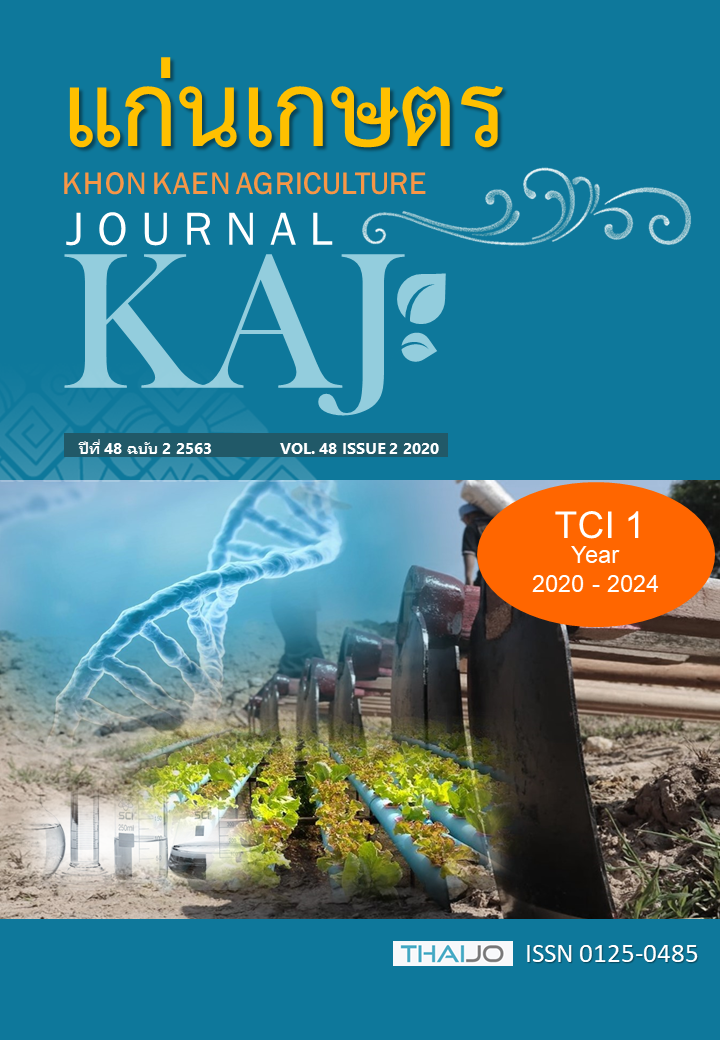Farmer’s economic change after participating vegetable cultivation using solar cell supported by the private sector
Main Article Content
บทคัดย่อ
The paper examines: 1) utilization of solar cell system for water supply and irrigation for vegetable cultivation, 2) the farmer’s economic change after participating the project and 3) the model of promoting organizations involved the project for sustainable development. Questionnaires and focus group had been used for collecting data. Four villages in Khon Kaen province, Northeast Thailand were selected for study area since the project located in this province and 135 participating farmers had been interviewed. Research period was conducted in July 2017- June 2018. Results found the water supply system for vegetable cultivation consisted of water pond, solar cell, submersible pump, water tank, water pipe and water meter. Before joining the project, water supply used electricity to pump water. Water costed 5 baht/cubic meter that farmers paid before project started, after joining the project, water costed 2 baht/cubic meter. 135 farmers in 4 villages participated cultivated free-chemically vegetable occupied 100-150 square meters per member. They gained annual income from vegetable cultivation 26,563 baht and totally 3,586,758 baht/year, while project cost for building water system was 3,238,000 baht. The present study also found that a developing model of promoting organizations involved in a solar cell project was four main organizations involved: 1) Private sector and NGO : Coca Cola and Population and Community Development Association, 2) Markets : Tesco lotus department store, local markets 3) Academic institution: Khon Kaen University and 4) People organization: Farmer group.
Article Details
เอกสารอ้างอิง
Kaplan, M. and Herforth, N. 2019. The private sector and development co-operation-two unequal partners in the promotion of agriculture. Rural 21. 53.
Parasak, C. 2019. Thailand’s economic is headed for new recession. WIRE Southeast Asia. Bangkok. Thailand.
Phuripanyo, C, P. 2016. Rural Development Based on Sufficient Economy Philosophy. Journal of Buddhist Education and Research. 2.
Rankin, M. and Satacoloma. 2013. Agribusiness Public-Private: A country report of Thailand. FAO. Rome.
Suindramedhi, S, Tokuda, H.and Ehara, H. 2016. Rural Socio-economic development: A comparative study of Thailand and Japanese Excperience on Organic farming. GMSARN International Journal V.10
Viravaidya, M. and Techanun, S. 2018. Phainokko. SE-ED Education Public Company Limited. Bangkok. Thailand. (In Thai)


